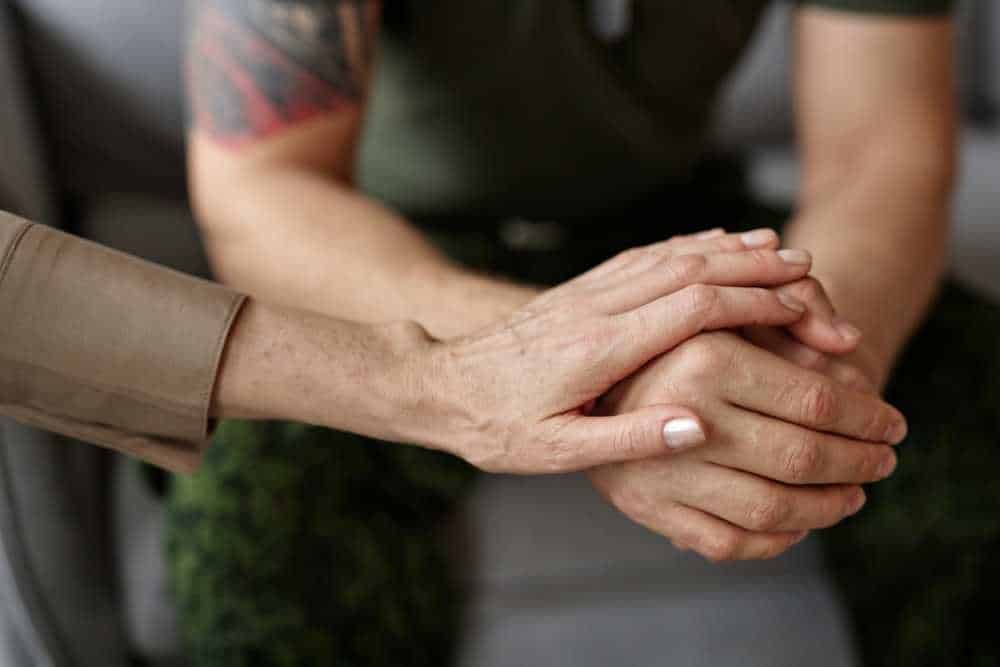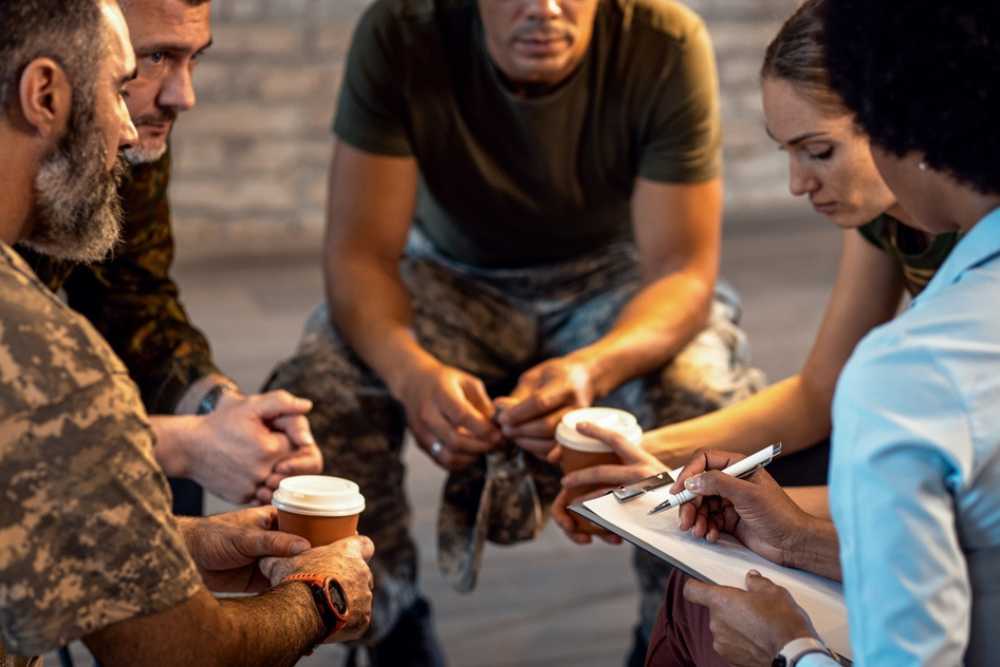The transition from military to civilian life creates numerous challenges that can profoundly impact veterans’ mental health and overall well-being. After years of structured military life with clear hierarchies, defined missions, and strong camaraderie, veterans often struggle to adapt to the relative freedom and individualism of civilian society.
The loss of military identity, which may have been central to their sense of self for years or decades, can create an existential crisis. Many veterans report feeling disconnected from civilian peers who haven’t shared similar experiences, leading to social isolation and a sense of not belonging.
The skills that made them successful in military environments—following orders, operating under pressure, maintaining hypervigilance—may not translate directly to civilian workplaces, creating frustration and self-doubt about their capabilities. These transition difficulties can significantly exacerbate existing mental health conditions or trigger new ones.
The military mental health statistics may experience increased rates of depression, anxiety, and post-traumatic stress disorder as service members navigate this major life change without the familiar support systems and coping mechanisms they relied on during service. The civilian world’s different pace, values, and social norms can feel overwhelming, particularly for those who have deployed multiple times or served in combat roles.
Without adequate support systems, career guidance, and mental health resources specifically tailored to their unique needs, many veterans find themselves caught between two worlds—no longer fully military but not yet successfully integrated into civilian life—which can create a cycle of psychological distress and social disconnection.

What Are the Emotional Challenges of Transitioning from Military to Civilian Life?
The emotional challenges of transitioning from military to civilian life are complex and multifaceted, affecting veterans at the deepest psychological levels. One of the most profound challenges is the loss of military identity, which often forms the core of a service member’s sense of self for years or decades.
Veterans might experience difficulties establishing meaning or purpose, feel disoriented by civilian culture, and feel disconnected from family, friends, and the community. This identity crisis can trigger intense feelings of grief and confusion as veterans struggle to redefine who they are outside the military structure.
The close-knit brotherhood and shared purpose that defined military life are suddenly absent, leaving many feeling isolated and misunderstood by civilians who cannot relate to their experiences. The transition often brings a sense of resentment toward civilian culture, which can feel frivolous or lacking in the discipline and mission-driven focus they valued in military service.
The emotional toll of this transition frequently manifests in serious mental health conditions that compound the adjustment difficulties. A recent survey of over 9,000 newly separated veterans found that 53% reported chronic physical conditions, and 33% reported chronic mental health conditions, with chronic pain, sleep problems, anxiety, and depression as the most commonly endorsed problems.
Veterans commonly experience heightened anxiety about their ability to succeed in civilian careers, depression stemming from loss of purpose and community, and anger about feeling abandoned or misunderstood. Many struggle with survivor’s guilt, particularly those who served in combat zones, wondering why they made it home when others didn’t.
Mental Health Treatment That Works
Call 949-625-0564How Do Veterans Cope With the Loss of Structure After Leaving the Military?
Veterans cope with the loss of military structure through a combination of self-directed strategies and external support systems, though the adjustment process can be challenging and lengthy. A veteran will have to create his or her own structure or adjust to living in an environment with more freedom.
Many veterans find success by intentionally recreating elements of military structure in their civilian lives, such as maintaining rigid daily routines, setting specific goals and deadlines, and pursuing careers in fields that offer clear hierarchies and defined expectations like law enforcement, emergency services, or corporate environments with strong organizational cultures.
To adapt to life after the military, veterans should create a new life structure, engaging in hobbies and activities that help rediscover their identities. Professional mental health programs for veterans also play a crucial role in helping veterans navigate this transition. Beyond formal programs, many veterans find that connecting with other veterans through support groups, veteran service organizations, or informal networks helps them process the adjustment while learning practical coping strategies from others who have successfully made the transition.
Over time, successful adaptation often involves finding new sources of meaning and developing the confidence to create their own structure rather than relying on externally imposed frameworks.

How Can Veterans Build New Social Connections in Civilian Life?
Building new social connections in civilian life represents one of the most significant challenges veterans face, as they must navigate the transition from the tight-knit military community to a civilian world that often lacks that same built-in camaraderie. Building a social network can be a challenge for veterans who are used to military bases or military community settings where work, social activities, and support systems are all integrated. The military provided an instant common bond with fellow service members, but in civilian life, veterans must actively seek out and cultivate relationships without that shared foundation.
Veterans can successfully build new social networks through a combination of veteran-specific organizations and broader community engagement strategies. By reconnecting with family and friends, joining veteran organizations, engaging in community activities, and utilizing online resources, veterans can build and strengthen their support networks.
Pursuing hobbies, volunteering for causes they care about, joining fitness groups, or taking classes can help veterans meet like-minded civilians while building their own interests and identity outside of military service. Many veterans also leverage social media platforms and veteran-specific networking sites to connect with others both locally and across the country, creating support systems that understand their unique experiences.
How Can Veterans Find a Sense of Purpose After Leaving the Military?
Finding a sense of purpose after leaving the military is often the most crucial yet challenging aspect of the civilian transition, as veterans must rebuild their identity and meaning outside the mission-driven environment that defined their service years. Veterans can successfully rebuild their sense of purpose through several interconnected strategies that often require patience and self-reflection.
The key is often understanding that purpose doesn’t have to replicate the grand scale of military missions; it can be found in smaller, more personal ways of making a positive impact on family, community, or specific causes. Professional counseling for veterans in California, support groups, and career coaching specifically designed for veterans can help facilitate this often lengthy process of self-discovery and purpose redefinition.
Contact Moment of Clarity for Help With the Transition From Military to Civilian Life
Professional mental health treatment plays a crucial role in helping veterans navigate the complex psychological challenges of transitioning from military to civilian life. Moment of Clarity in Southern California provides trained therapists who understand military culture and the unique stressors of this transition and can provide veterans with specialized interventions that address pre-existing service-related mental health conditions and new challenges that emerge during the adjustment period.
Through therapy, veterans can explore their values, interests, and goals outside of military service, helping them develop a new sense of identity and purpose. Contact Moment of Clarity at 949-625-0564 today for more tips and treatment resources to help transition from military to civilian life.
External Sources
- U.S. Department of Veterans Affairs – Common Challenges During Re-adjustment to Civilian Life
- National Library of Medicine – Transition from Military Service: Mental Health and Well-being Among Service Members and Veterans with Service-connected Disabilities
- National Library of Medicine – The career transition experiences of military Veterans: A qualitative study




